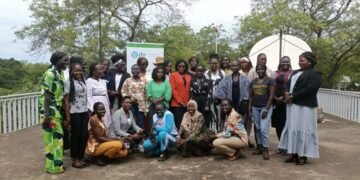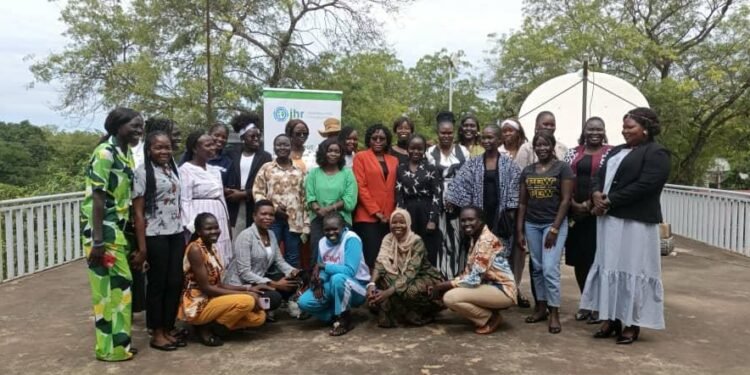The Journalists for Human Rights (JHR) in partnership with Global Affairs Canada has trained over 30 female journalists in South Sudan on gender-sensitive reporting.
The two-day training, held at the Association for Media Development in South Sudan (AMDISS) Center was aimed to promote inclusive and equitable journalism that uplifts both male and female voices.
The workshop focused on equipping female journalists with the skills and knowledge to report on gender issues in a fair, inclusive and rights-based manner.
It also aimed to empower them to promote gender equality through their reporting, thereby contributing to a more just and peaceful society.
Speaking during the training, Mary Ajith, Chairperson of Journalists for Human Rights, emphasized the powerful role of media in shaping the narrative of a young nation like South Sudan.
“When you contribute to the media, you’re shaping the image of South Sudan. As a country that’s just 14 years old, it is important that female journalists take up the role of telling the stories of women and children,” said Ajith. “Gender-sensitive reporting is not like your daily reporting where you pick and choose stories — these are stories that can change lives.” Mary said.
She further stressed the importance of covering topics such as girls’ education which she said is vital for the country’s economic development.
Mustapha Dumbuya, Director of the JHR Africa Program, encouraged journalists to dig deeper and find authentic stories from the grassroots.
“The real stories are not in the offices or airports — they’re in the markets, on the streets, and in the villages,” Dumbuya said.
Meanwhile, Josephine Achiro, Chairperson of AMDISS, praised the initiative, noting the value of gathering female journalists in one space to learn and share experiences.
“Having female journalists in one room is a great opportunity, especially in a media landscape like South Sudan’s, gender sensitive reporting means balancing voices — it’s not just about reporting women’s stories, but ensuring that all voices are represented. As female journalists, you have the push and power to do that.” Achiro said
The training marks a significant step toward strengthening gender equality in South Sudan’s media and fostering a culture of inclusive storytelling.












